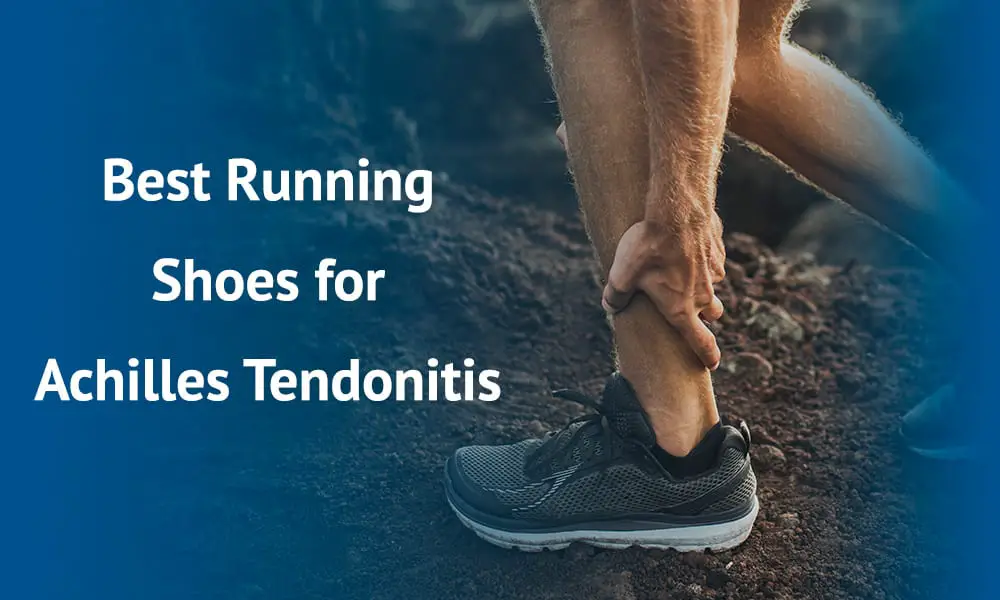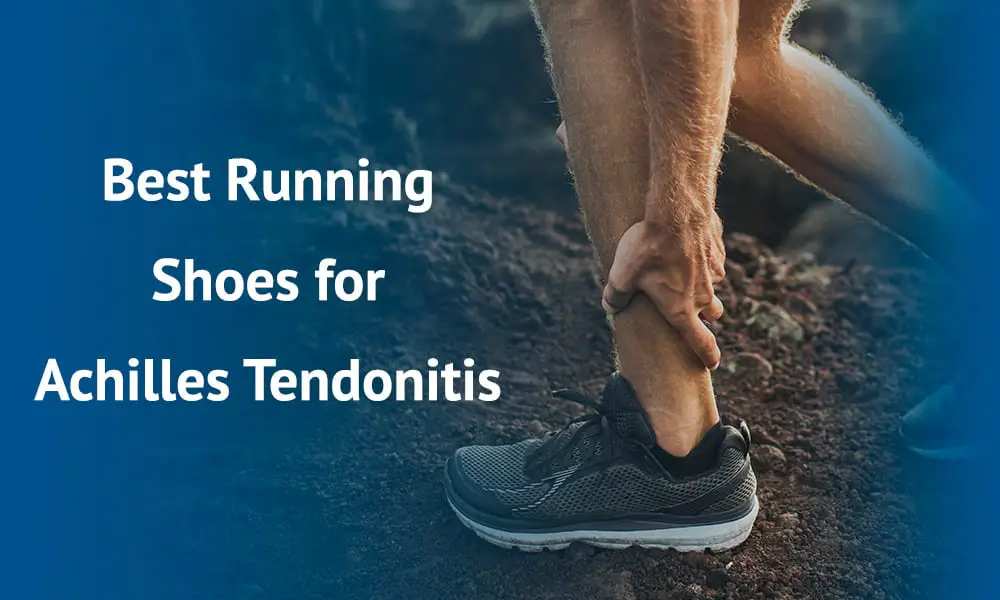Other Posts
Running Gifts for Her: Gift Ideas for the Female Runner in Your Life
March 18, 2023Looking for the perfect gift…



Finding a pair of running shoes that won’t aggravate your Achilles tendonitis is an absolute priority if you suffer from the injury. Many runners will tell you, managing an Achilles injury is primarily down to the type of shoes you run in.
Achilles tendonitis is the result of excessive use of the Achilles tendon during activity. Believe it or not, the Achilles tendon is the longest tendon in the body. When it becomes inflamed, It can be excruciatingly painful even to walk, especially in the mornings.
There are a few distinguishing features when selecting a pair of running shoes that will be good to help you recover from your Achilles injury like cushioning, soft collar (Especially at the back), higher heel to tow drop & support if you’re an overpronator or neutral.
Not only can running shoes that are designed to help protect your Achilles tendon help, but also other exercises and activities you can incorporate into your everyday life can have a massive impact as well. So you might find yourself asking the following question:
So without any further delay, let’s take a look at the best shoes you can get to help get yourself back running after an aggravating Achilles tendonitis injury.
[amazon box=”B08D8J4TV4″ title=”Brooks Ghost 13 Running Shoe – Best running shoe for Achilles” description=”none”]
The first time I tried on the Brooks Ghost 13 running shoe, I could immediately tell how supportive it was around my entire foot.
The tab at the back of the heel isn’t very high, And very soft to touch, which means it isn’t putting a lot of pressure on the Achilles tendon and therefore, it’s not going to aggravate while I was running.
With the drop from the heel to the toes being 12mm, the angle the Ghost 13 holds your foot at means it moves the pressure point waving the Achilles tendon.
They are designed as a neutral shoe they are very comfortable for most runners, and I found an absolute delight to run in.
[amazon box=”B07RMK42HW” title=”New Balance Men’s 1080v10 – Best for neural runners” description=”none”]
It’s the second time I’ve used the new Balance 1080v10, and it’s a very good reason because they are very good at what they’ve been made for.
The shoes sole is made from a foam material that is very good at absorbing a lot of the vibration and impact you get from the floor, which would ordinarily irritate the Achilles tendon.
I’ve also recommended these shoes for anyone running with knee pain thanks to the superb job it does at minimising vibrations through the leg.
You might have noticed a large tab at the back of the shoe resting on the Achilles tendon. This material is incredibly soft and moves nicely with my foot during the running stride.
The upper is made from a synthetic material that wraps nicely around my foot—stopping any unwanted movement.
The price point is a little on the high side if you’re an amateur runner.
[amazon box=”B088C57BHG” title=”Saucony Men’s Ride 13″ description=”none”]
Saucony designed this shoe from the ground up to create an all-around running shoe that’s balanced and will fit well for any runner.
The toe box is relatively wide so if you do have wider feet then you would find these very comfortable indeed along with the mesh upper, which hugs the feet nicely, giving a consistent hold around the foot.
The Heel offset is 8mm, which helps ease the tension on the Achilles tendon while you are running or walking. It’s not as prominent as some of the other shoes are listed here, like the Brooks Ghost 13. But it’s still enough of an offset to make a difference for runners with Achilles tendonitis.
The heel drop isn’t as much as some of the other running shoes.
[amazon box=”B089WG9W26″ title=”MIZUNO WAVE INSPIRE 17 – for people who compete” description=”none”]
The Mizuno Wave Inspire 7 is designed for more of a road running shoe with slightly less support than some others, but they are super lightweight.
With the shock-absorbing midsole, the Wave inspire 17 does a great job of protecting your feet and tendons from the repetitive shock of running.
Although I said there isn’t as much support as some of the other built-up trainers, the Wave Inspire 7 hold my feet incredibly well, and with the vast offset, it removed all pressure away from my Achilles tendon.
Not as much cushioning and support as some of the running shoes.
Running is incredibly repetitive, and if you’re wearing the wrong running shoes, then there is a chance it could cause not only an Achilles injury but also other joint or tendon injuries.
People who Frequently run on uneven surfaces, constantly running uphill or running at more speed.
The way your foot hits the floor also plays a big impact with runners who come down on the ball of their feet tend to put the Achilles tendon under more strain than those runners with the Neutral heel first Contact.
Yes, they absolutely can. Adjusting how your foot strikes the floor can play a big part, and using insert or orthotics will help neutralise and force your feet to strike the floor correctly, causing less strain on areas of your body by the feet, ankles, Achilles and knees.
Every person will have a slightly different use, so trying to find the best running shoes for Achilles tendonitis can be a bit of a maze.
The main areas you need to look out for when selecting a pair of running shoes is Cushioning. Does the shoes have sufficient cushioning around the foot to minimise vibration and shocks running through the foot into the Achilles when you strike the floor. The term to look out for is something known as stack height. This means the amount of cushioning between the foot and the floor.
Support around the foot is another key. Having sufficient support around the entire foot will stop it from moving around when you’re running. It enables you to have a more planted contact with the floor on every single stride. As you can imagine, when you go out for a run, you’re striking the floor thousands of times. If you’re able to improve every single one, even buy a small percentage, you can make a big difference by the end of the week or month.
The cuff of the shoe is another area to look out for. This is the very top part of the shoe which runs around the ankle. If this area of the shoe is very stiff, then that can cause rubbing and irritation to the Achilles tendon. All the shoes listed in this article don’t have that problem and are very padded.